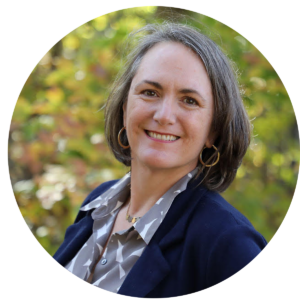Refugee Integration through Digital Equity

by Mary Lynch
Through its partnership with World Education and Commonwealth Catholic Charities, Literacy for Life seeks to ensure that refugees resettling in the Peninsula area have access to Internet service, devices, and digital literacy skills so that they can benefit from Literacy for Life’s existing ESOL services.
Literacy for Life, a community-based literacy organization in Williamsburg, has been awarded funding from World Education, Inc. to pilot an equitable digital literacy ecosystem among refugees living in the Peninsula region. The project seeks to eliminate barriers that might stand between local refugees and their ability to integrate into their communities through educational opportunity.
Literacy for Life empowers adults by building foundational skills for success in life and work. Areas of instruction include reading, writing, math, and English language along with special programming to address specific needs such as high school completion, college and career preparation, health literacy, financial literacy, and digital literacy. Instruction is provided virtually as well as in-person by professional staff along with trained community volunteers.
World Education is a nonprofit organization dedicated to improving people’s lives around the world through education and social and economic development programs. The U.S. Division of World Education advances equity through education to support adults, their families, and communities to thrive.
Transforming Immigrant Digital Equity (TIDE), a project of World Education, seeks to dramatically expand access to English for Speakers of Other Languages (ESOL) learning and related immigrant inclusion services for immigrants and refugees through scalable, sustainable program models and services that optimize the use of technology.
Literacy for Life is one of three pilot sites nationwide building a local ecosystem of partners and stakeholders to ensure equitable ESOL learning and digital inclusion opportunities for immigrants and refugees in their communities.
For its TIDE project, Literacy for Life is partnering with the Newport News location of Commonwealth Catholic Charities (CCC). The mission of CCC is to provide quality, compassionate human services to all people, especially the most vulnerable, regardless of faith. CCC’s diverse services include Refugee Resettlement, which consists of housing placement, case management, school enrollment, health and language support, and education and employment services.
Through its partnership with World Education and Commonwealth Catholic Charities, Literacy for Life seeks to ensure that refugees resettling in the Peninsula area have access to Internet service, devices, and digital literacy skills so that they can benefit from Literacy for Life’s existing ESOL services.
The first hurdle that Literacy for Life’s project will address is Internet access. Literacy for Life staff are researching opportunities for residents to obtain free or affordable WiFi and devices. Sources include existing government and social service programs as well as private donations. Staff will assist individual refugees to apply for the assistance that will be most appropriate for their situation.
Internet access and a device, however, are of little value if the individual lacks the digital literacy skills to take advantage of them. The refugees served by Commonwealth Catholic Charities vary widely in their educational backgrounds, English language skills, and digital literacy skills. Some will already have the skills needed to immediately enroll into Literacy for Life’s existing slate of virtual services, which include ESOL classes at various levels along with health literacy classes, career coaching, and more. Those individuals will be able to begin attending immediately, as soon as their device and connectivity are in place.
Others in the refugee population, however, will require significant skill development before they can take advantage of their connectivity. Literacy for Life will rely upon its nearly 50 years of experience recruiting and training volunteer tutors in order to meet those individuals’ needs. Tutors will meet one-to-one or in small groups with learners in order to teach them to use their specific devices. Needed skills will range from turning on a device, to linking to WiFi , to downloading and opening a Zoom app. In addition to teaching digital literacy skills, tutors will also help their learners to develop the basic English language skills they will need in order to participate in ESOL classes or take advantage of other Literacy for Life services.
Transforming Immigrant Digital Equity is a pilot project. During the process of serving the refugee clientele of Commonwealth Catholic Charities, Literacy for Life will develop networks and partnerships, untangle logistics, and develop curricula and teaching strategies so that the TIDE model can be scaled to serve additional underserved immigrant populations. With Internet connectivity, digital literacy skills, English language skills, and access to Literacy for Life’s diversity of services, exponential numbers of immigrants in the Peninsula region will be positioned to pursue their goals, contribute their gifts to the community, and achieve their dreams.
 Mary Lynch is Literacy for Life’s (LFL) Human Services Coordinator. In her role, she enrolls students, trains tutors, matches pairs, and provides ongoing support. Previously, Mary taught community college English and was a Peace Corps volunteer in Papua, New Guinea. Mary volunteered as a tutor with Literacy for Life when she was a student at William & Mary (‘92) and she returned as a member of staff in 2010.
Mary Lynch is Literacy for Life’s (LFL) Human Services Coordinator. In her role, she enrolls students, trains tutors, matches pairs, and provides ongoing support. Previously, Mary taught community college English and was a Peace Corps volunteer in Papua, New Guinea. Mary volunteered as a tutor with Literacy for Life when she was a student at William & Mary (‘92) and she returned as a member of staff in 2010.